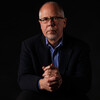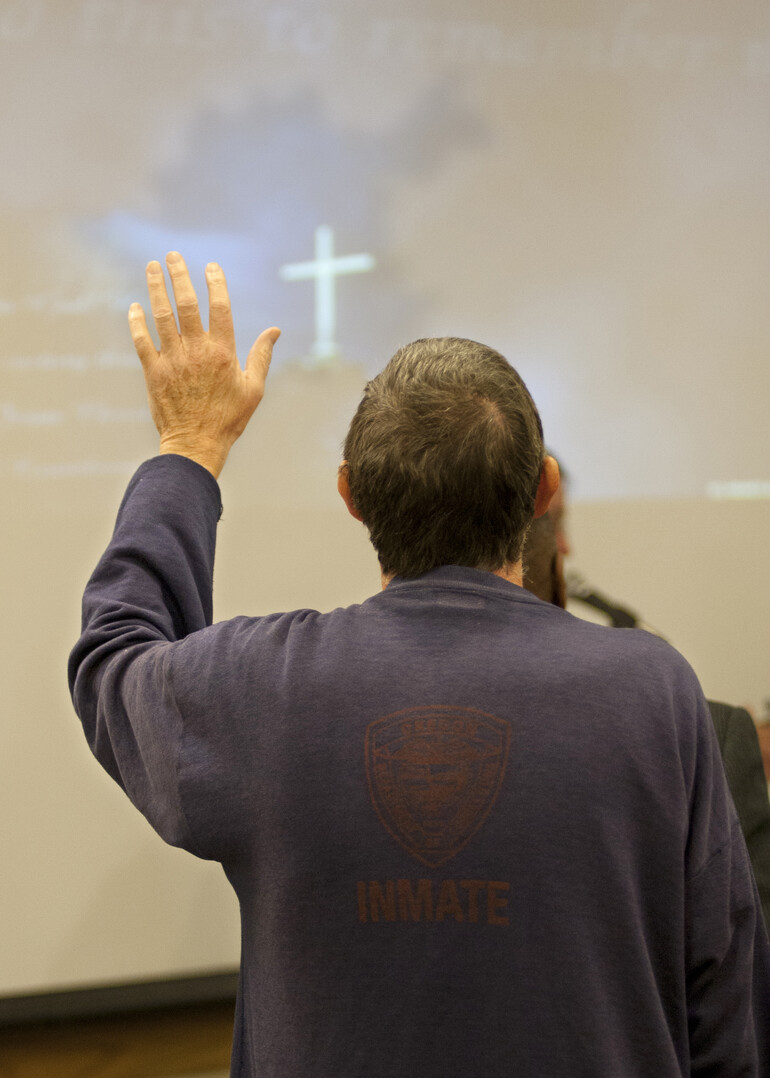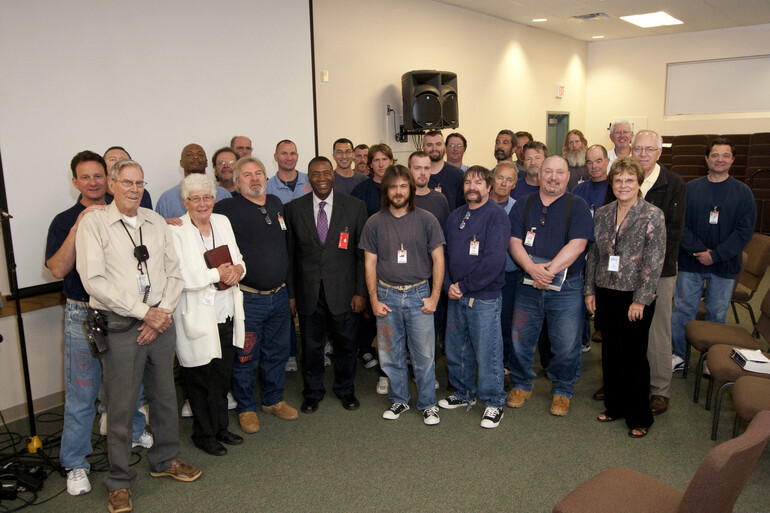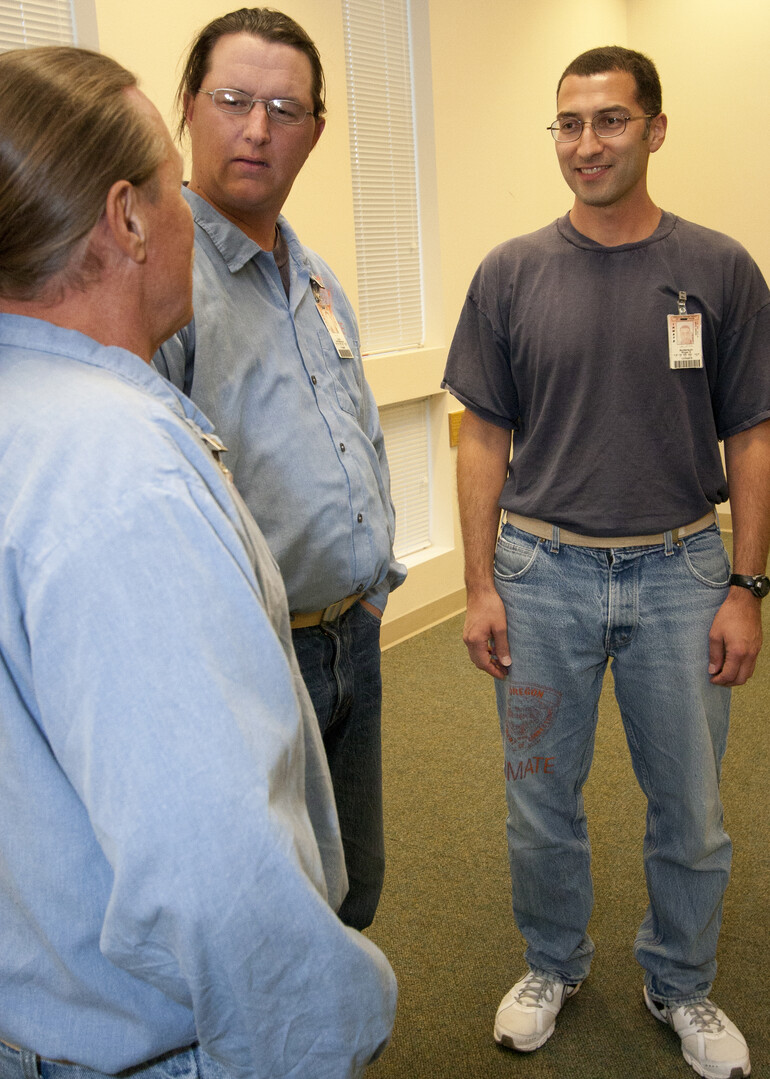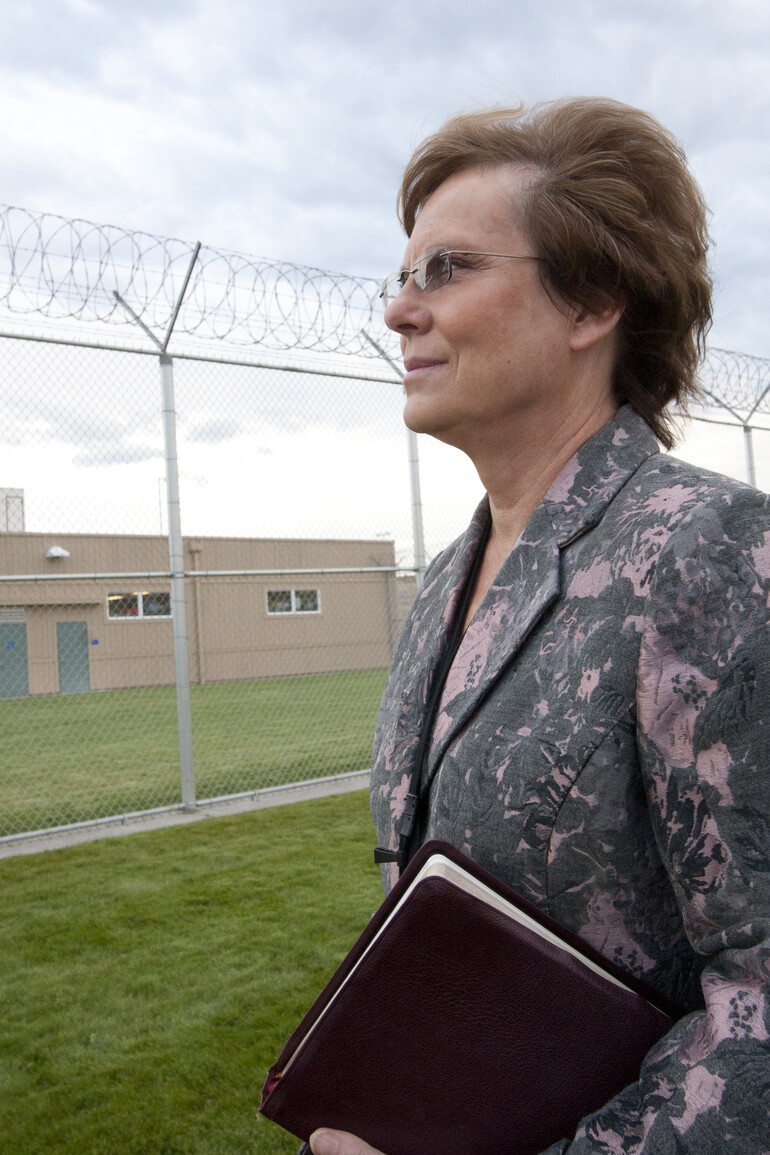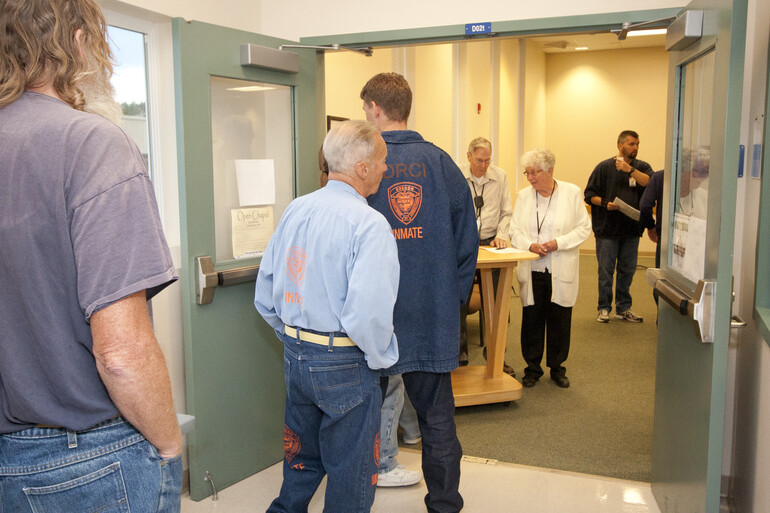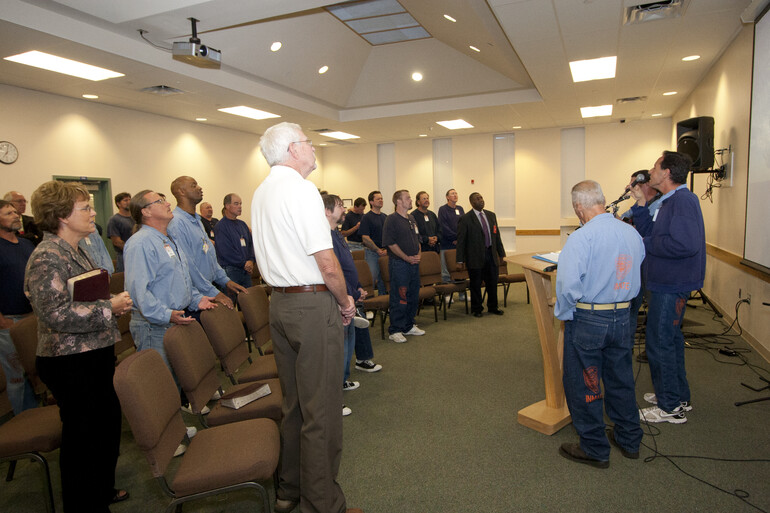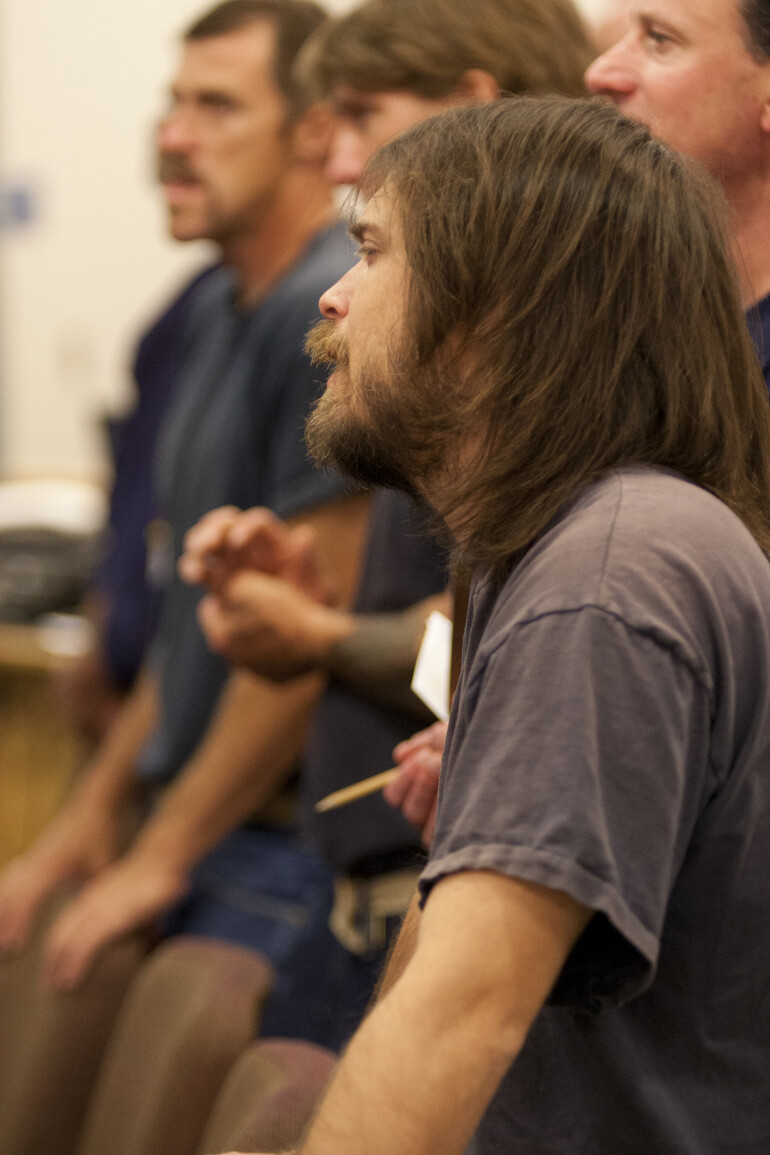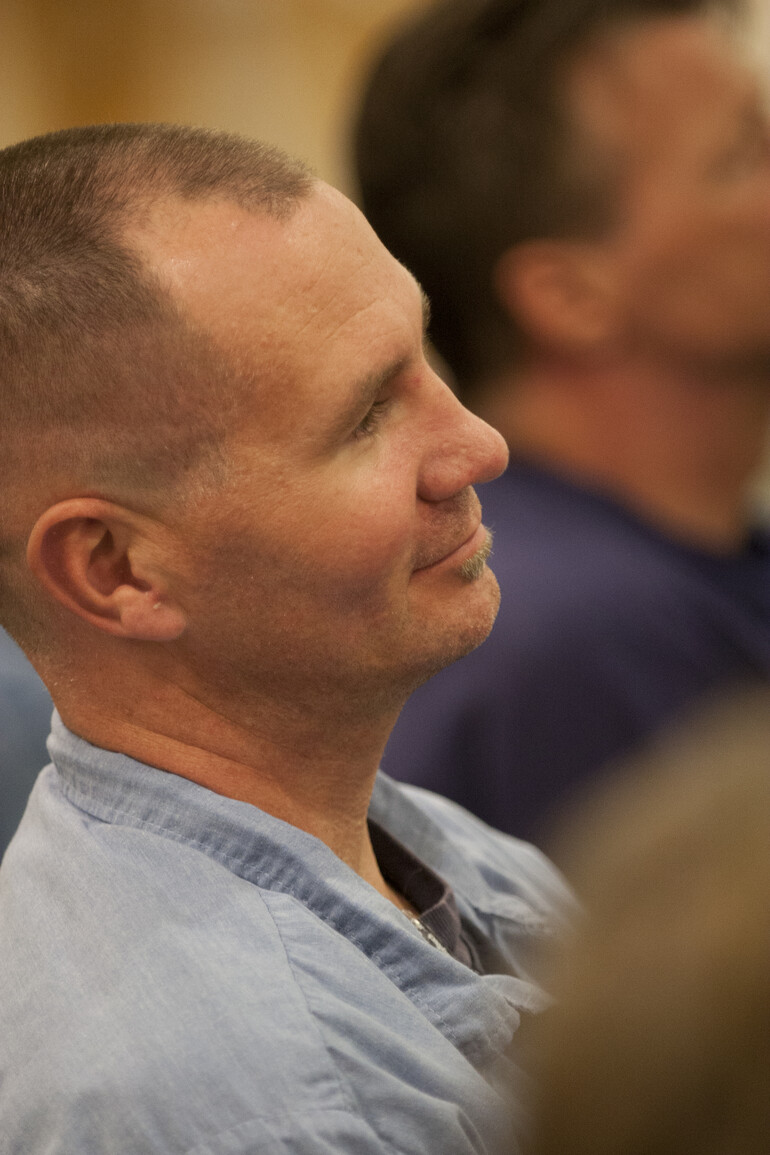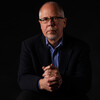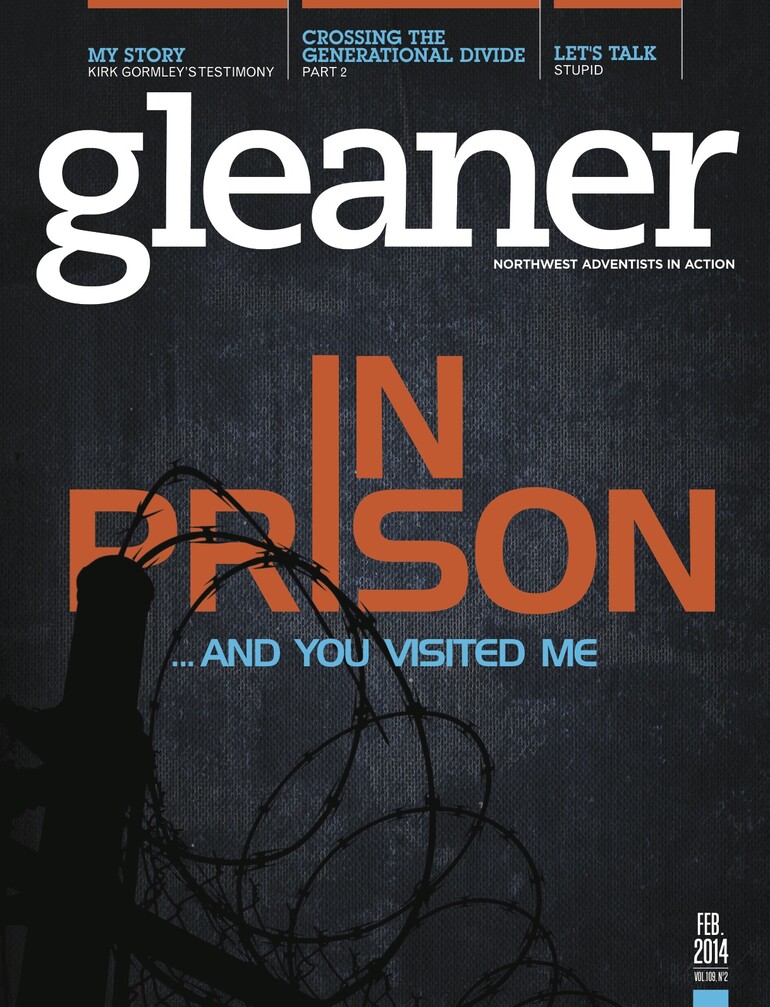His handshake is firm. His smile quick. His eyes are bright and direct, this man who wears the denim dungarees.
When I met Roger Anderson on an October evening at the Deer Ridge Correctional Institution in Madras, Oregon, prison had been his home base for 14 years. He has since been released. But if you meet him in your church or invite him to your home, I'll bet his record won't be the first thing on your mind. Roger has changed.
During that Friday evening meeting, I learn a little about Roger's journey, his initial connection to Pastor Kevin Wilfley at another facility in Umatilla, Oregon, his subsequent viewing of a Doug Batchelor video series, and his decision to be baptized as a member of the Seventh-day Adventist Church.
But he doesn't have much time to talk. He’s busy connecting cables and microphones in support of a weekly gathering sponsored by the local Adventist prison ministry group.
What I see is more akin to a family reunion than a meeting. Ron and Lucy Wood, Madras Church members, stand at the entrance to the room with warm, welcoming smiles, making each inmate feel like a long-lost son. Phil Kohfeld is there too, organizing his thoughts as he prepares to lead a brief Sabbath School lesson study.
Bev Schultz has rallied this volunteer crew as she often does on Friday evenings. Six years ago, this type of regular ministry would have been far from her mind. But at a women’s retreat at Eagle Crest in central Oregon, she was impressed to be anointed for service. Then one Sabbath at church someone stood up and said, “The inmates in our prisons need our prayers.” And suddenly that earlier anointing and the immediate need came together in Bev’s mind as a call from God. She organized a small group to begin Sabbath School and church services at the Madras facility. They’ve been going strong ever since.
As I look on at the Friday evening gathering, nearly 40 inmates begin with musical praise and worship. This could just as easily be at your local church — if denim dungarees were required dress. When the music comes to an end, prayer requests begin. This is where it becomes obvious that, although some may call them inmates, prisoners, offenders, these are God’s children, in need of His love and mercy, eager to praise Him for blessings, not ashamed to ask Him for help. One man voices his gratefulness that he was able to witness to someone and encourage them that day; another is thankful that others who are around him in his unit are also Christians. When one young man volunteers with trembling voice that his wife is struggling with being all alone, a fellow inmate immediately volunteers to pray out loud for this fellow brother in Christ and his young wife.
Is it unusual to feel that the Christian mission and message is somehow more raw and real here in this setting than in our local churches? Is it wrong to wonder what our regular services would be like if stripped of display and pretense? Here, in this penitent penitentiary gathering, there are few make-believe Christians. Here it is obvious that all have fallen short. Here it is clear that the foot of the cross means level ground for all.
That’s why Phil’s Sabbath School lesson hits home with the theme "From Fractured to Friendship." Along with the other volunteers, he’s developed a unique bond with these men. There’s no condescension here — just honest conversation. “When I try to take charge of my life,” Phil observes, “I get into trouble.”
“You’re not alone,” calls out one of the men.
Alphonso McCarthy, North Pacific Union Conference vice president, is the special guest speaker for the Friday evening church service. He reminds the men that God sees value in every soul. “Jesus looked down through the tunnel of time, and He saw all of us. He saw something valuable in us. He saw joy at the end of the journey.” The men listen intently, with heads nodding. This is at the very core of their hope.
Joy is coming sooner for some of these men than others. Some will be incarcerated for life. Others have just a few months or years to go.
And, frankly, that is the area where many of our Adventist prison ministry efforts flounder — the transition between prison life and the outside world, where former friends and old habits await. It’s not easy, either, for a local church to immediately provide a supportive, nonjudgmental spiritual home for an ex-inmate. Caution is understandable. Are they truly reformed? Will they reoffend? Would they be a bad influence on the youth? It is not uncommon for Adventist inmates, released back to their home town, to feel estranged from not only their immediate family but also their church family as well.
It’s indeed a frustration to Bev and other prison ministry leaders, who work closely with the spiritual journey of inmates and yet feel helpless to coordinate with their home churches to facilitate a smooth, supportive transition. In a sense, these inmates are like college students, just graduated, looking for a supportive church home that understands them and provides an appropriate avenue for ministry. Such an environment is not always easy to find. But it’s critical, for during the past three years, Bev estimates the Madras facility has hosted 20 Adventist baptisms.
She is not the only one concerned about life beyond prison walls. Don Preas heads an active group of Adventist volunteers who regularly visit the Walla Walla State Penitentiary. This is home for a couple of life-sentence inmates with Adventist connections — Robert Yates and Gary Ridgway who was labeled the Green River Killer. Here, Dan and his team members have seen nearly 100 baptisms in the past three years.
Yet Preas says the challenges for former inmates are many. Due to long incarcerations, family support often disintegrates. In addition, Preas estimates more than 90 percent of inmates have been in prison due to problems with alcohol or drugs — addictions which have plenty of enablers in regular society. “So,” Preas says, “they’ll try to come to church. If they feel a warm, caring environment and the presence of the Holy Spirit, they may continue to come. But if that is not present, they’ll just drift away.”
Skeptics abound, convinced that prisoners have practiced a lifetime of deceit and are skilled at playing on the good will of well-meaning Christians. The victims and families impacted by their crimes, if still alive, have ongoing physical and mental scars. Are their challenges ignored in the rush to redeem the perpetrator?
There are no simple answers here. But the thin line between harmful thoughts and harmful actions is a line against which we all struggle. When we recall that Jesus said there was more rejoicing in heaven when one sinner repents than with all the righteous folk, it reminds us that the priorities of His kingdom are often counterintuitive to ours. The kingdom of heaven is all about redemption.
That’s why prison ministries teams throughout the Northwest and beyond deserve our thanks and our prayers. Tag along sometime as they go behind barbed wire and brick walls to provide the human touch of a God who cares about sinners — a circle which includes each one of us.




